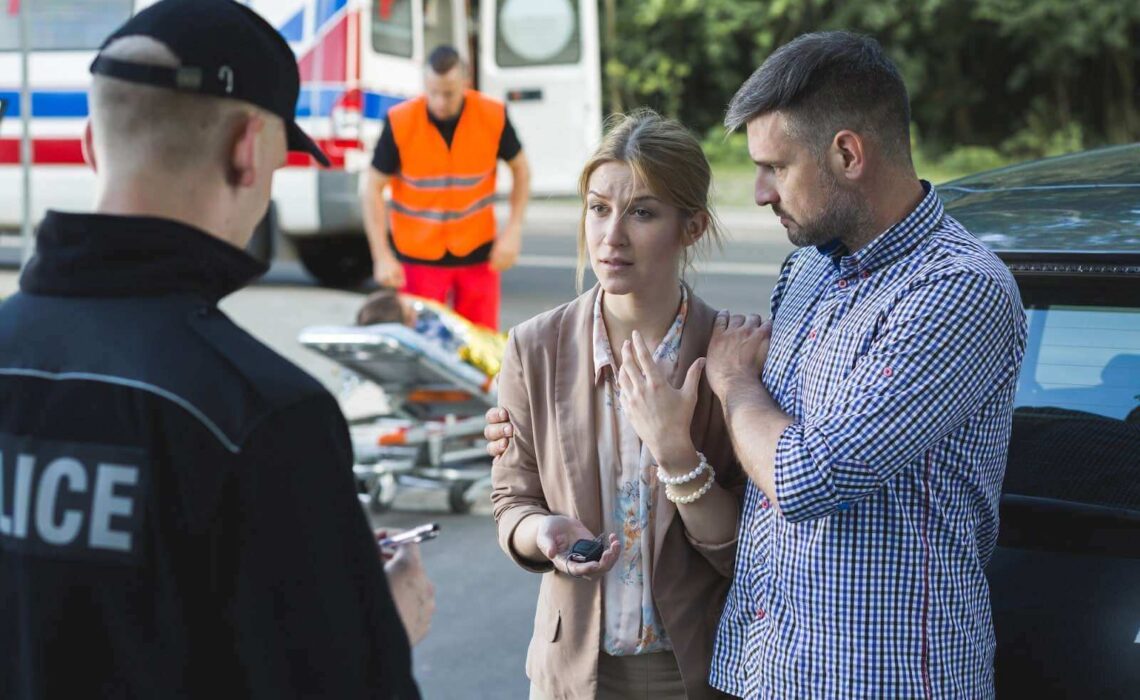Did you know the violent crime rate is 381 cases for every 100,000 Americans? If you want to know what steps to take after being a victim of a crime, we can help.
In this guide, we’ll go over what to do after a home invasion or other incident.
Want to learn more? Keep reading.
1. Seek Medical Attention
Table of Contents
After certain crimes, you might need to get medical attention right away. After you alert authorities, get checked out by trained medical professionals.
Even if you assume you’re okay, you’ll still want to get a checkup. People tend to be in a state of shock and aren’t aware of what’s fully happened. You might have adrenaline coursing through your body.
People tend to have mental and emotional impacts after being a victim of a crime. You might need to look into therapy.
2. Call 911
Try to call 911 right away after any crime. No matter if you were robbed, assaulted, or involved in an accident, get help.
If your home got robbed or you were a victim of a crime, call law enforcement. You will need to report the offense right away.
When the emergency operator asks you to explain what happened, try and remain calm. Give information about the incident and your location to the operator.
The operator might send emergency services, fire personnel, or police officers.
When the officer arrives, try and give as much information to them as possible. Provide descriptions of vehicles, items stolen, or information about the suspect.
3. Home Invasion Crime
Some people keep a written or digital list of their valuables and a photo and serial number per item.
If the item got stolen, you would still have detailed information about the item. You can give the list to law enforcement to help identify stolen property.
Depending on the situation, you might need to have the crime scene cleaned up at your home. Click here for more information.
4. Bank Crime or Fraud
If your bank cards or credit cards got stolen, make sure you call your bank. Ask the bank representative to cancel your cards right away.
You’ll also want to call credit bureaus and make sure fraud alert protection gets placed on your cards. This way, you can protect against identity theft.
If your bank cards or credit cards get used by someone, get the location, date, and time of the sale.
Give this information to the police. This way, they might be able to get visual information of the suspect from a surveillance video.
5. Victim of a Hate Crime
If you were recently a victim of a hate crime, write down the details of the crime right away. Make sure to include information about the perpetrator’s age, race, weight, gender, and clothes.
Make sure you include any biased comments or threats in the report. When you file a report, get the officer’s badge number and name.
You’ll want to confirm that the officer filed the incident report. Make sure there’s a case number. If the police report doesn’t get taken at the time of the incident, head to the police station.
Make sure you ask the officer to check the “hate crime/incident” box on the report. Consider reporting the incident to a local community organization.
Ask for support from your friends and family. You can also get professional help from a counselor who has experience with your situation.
6. Seek Help From a Local Agency
There are programs in the United States that serve people who were victims of crime.
You can work with a government agency, a charitable organization, or a nonprofit. Aid and service from the programs include general assistance and compensation.
You can get compensation for crime-related expenses. People get counseling, medical treatment, and funeral costs covered.
Sometimes, crime victim compensation programs will also cover lost wages.
These programs will also offer services like emergency shelter, crisis intervention, and counseling. You could also get criminal justice advocacy and emergency transportation.
Sometimes, entire communities will become eligible for help if multiple victimizations occurred.
There are financial support programs through the Crime Victims Fund. The programs get administered by the Office for Victims of Crime.
The fund gets money from penalty assessments, bond forfeitures from convicted federal offenders, and fines.
Get information about assistance and compensation through your local prosecutor’s office. You can also get information from the law enforcement agency after reporting an offense.
7. Focus on Making a Positive Change

There’s been progress in helping crime victims because people have turned their victimization into something positive.
Survivors and victims of physical and mental violence use their experience to help others.
They make sure true justice occurs. People make sure there are meaningful help and compassionate treatment for crime victims.
A lot of these people volunteered their resources and time to create these kinds of programs.
Survivors have started working at local shelters and help with crisis hotlines. Others share their experience on victim impact panels. Look at helping others after you have received mental and physical assistance.
Now You Know What to Do if You Were a Victim of a Crime
We hope this guide on being a victim of the crime was helpful. Being a victim of a crime can impact your mental and physical health. Reach out to local authorities, see a doctor, and consider counseling.
Do you want some more tips? Read about health, business, and more.





No Comments